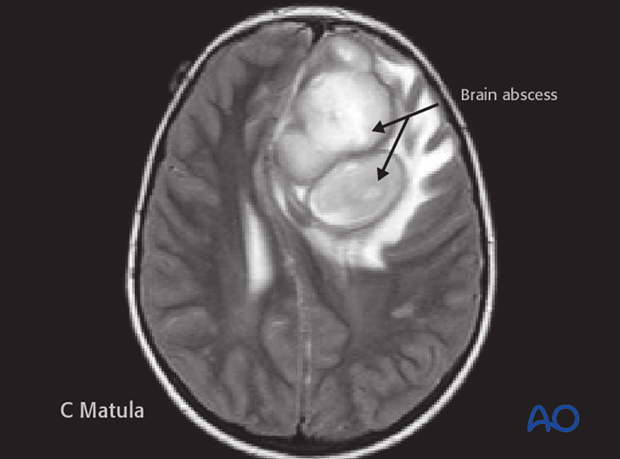Infections
1. Infections
7-30% of patients with CSF leaks develop meningitis.
Recurrent meningitis can be a complication in cases of occult CSF leaks.
Antibiotic prophylactics should be used in all patients with CSF leaks. Wide spectrum antibiotics are selected. Alternatively, more specific antibiotics are chosen according to the culture and sensitivity results (antibiogram).
Typical brain abscess
Axial enhanced cranial CT scan, showing the presence of a round mass lesion in the right temporal lobe, with enhancement of the walls (arrows) and mass effect on the surrounding structures caused by the perilesional edema.
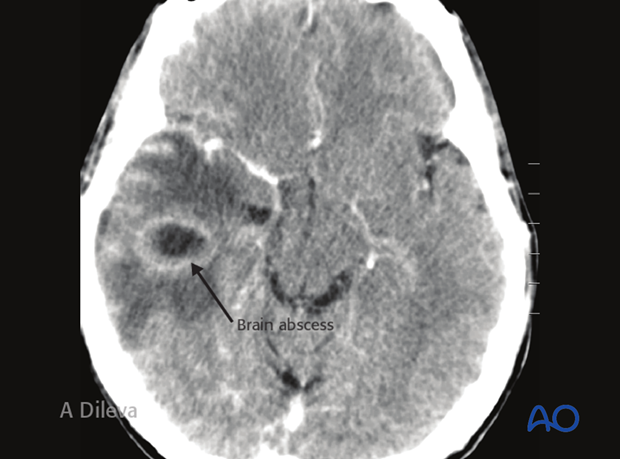
Multimodal imaging of the same patient:
MRI with gadolinium with enhancement of the walls (arrows) and mass effect on the surrounding structures caused by the perilesional edema.
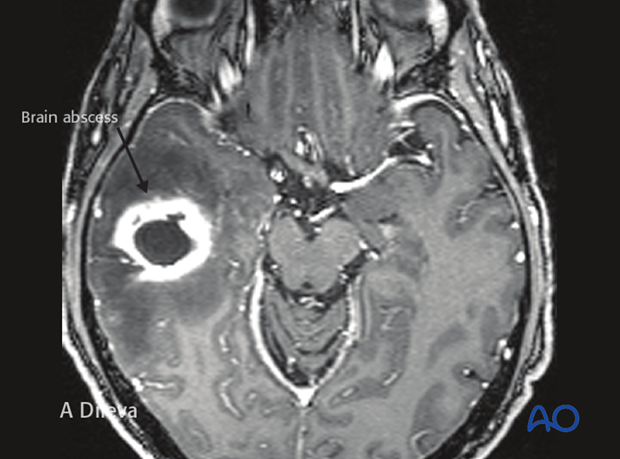
MRI with DWI (diffusion weighted imaging) sequences showing a brain abscess in the same patient.
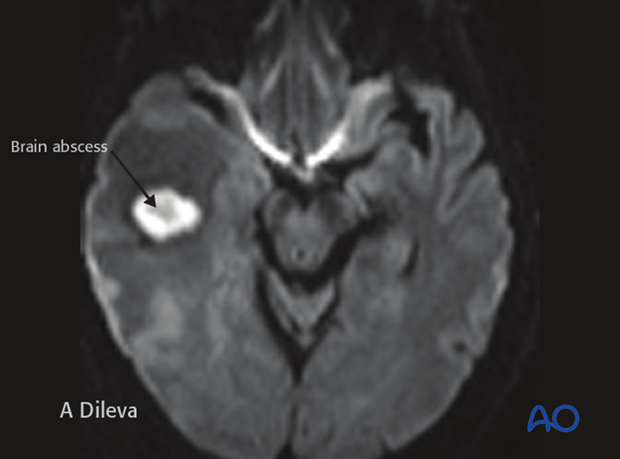
Nuclear medicine scan of the same patient showing the brain abscess.
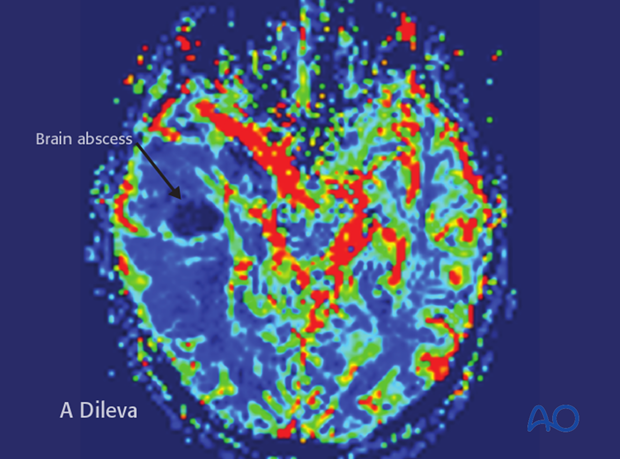
Delayed brain abcess
Delayed brain abcess can occur with or without a history of CSF leak even 20-30 years post injury mandating close patient follow up over an extended period of time.
This MRI shows a classical multiloculated frontal brain abscess in a patient 21 years after trauma.
